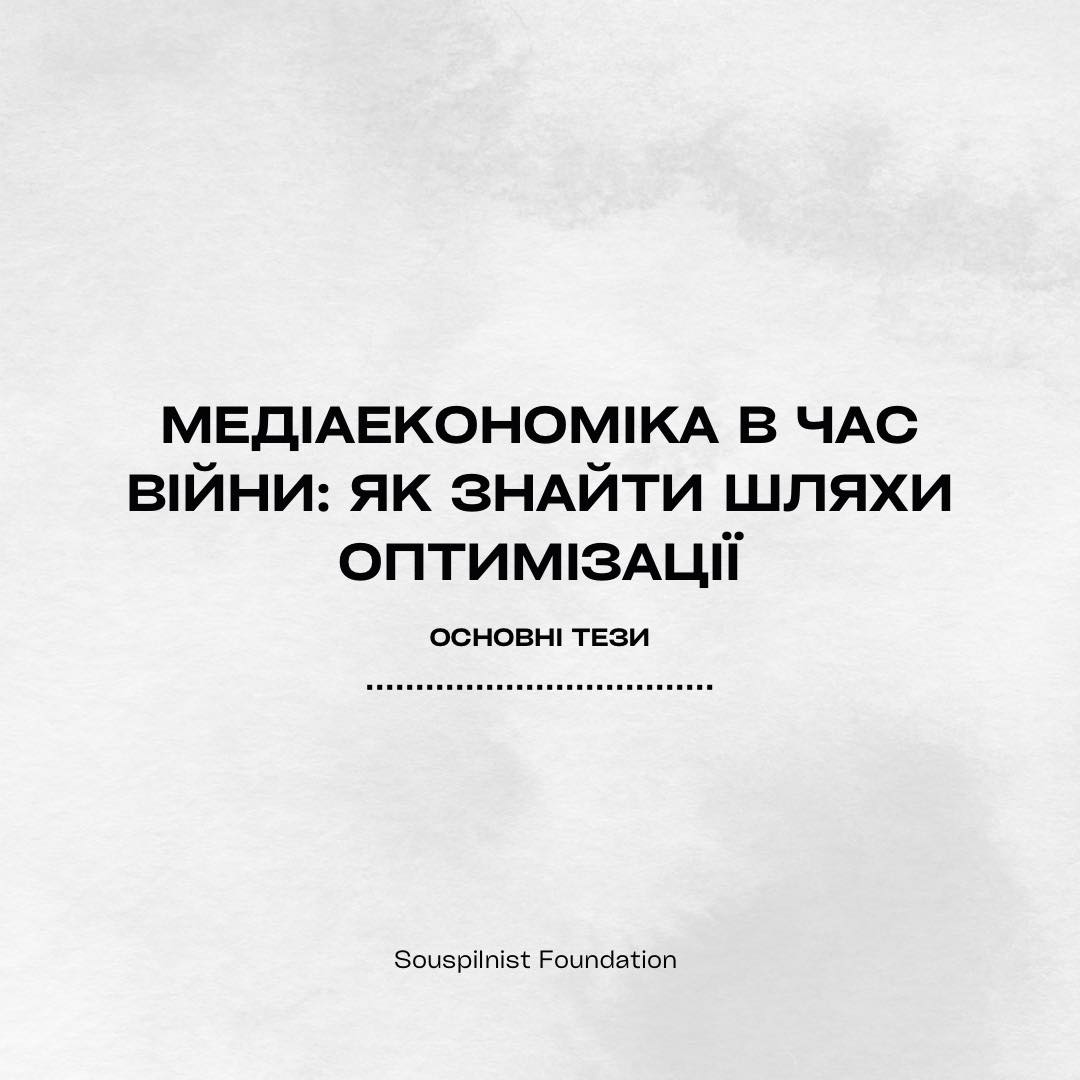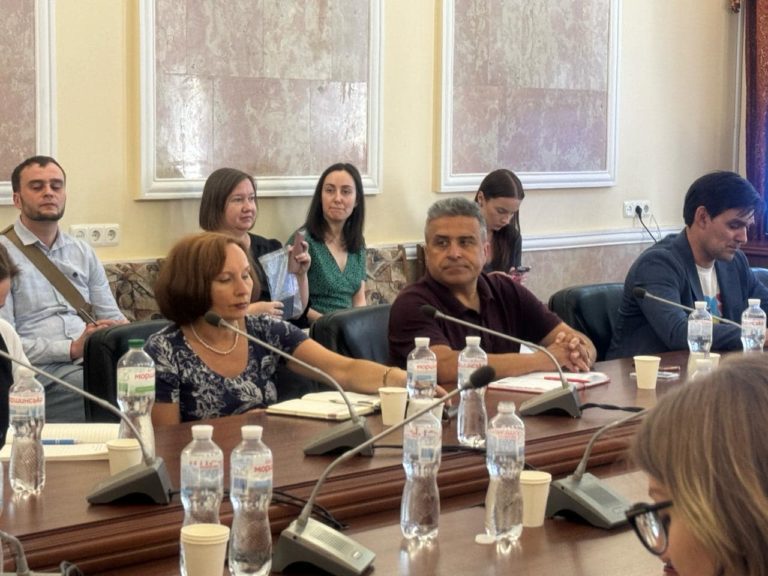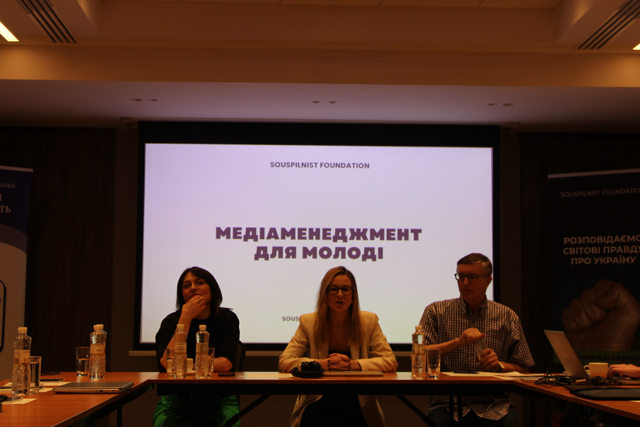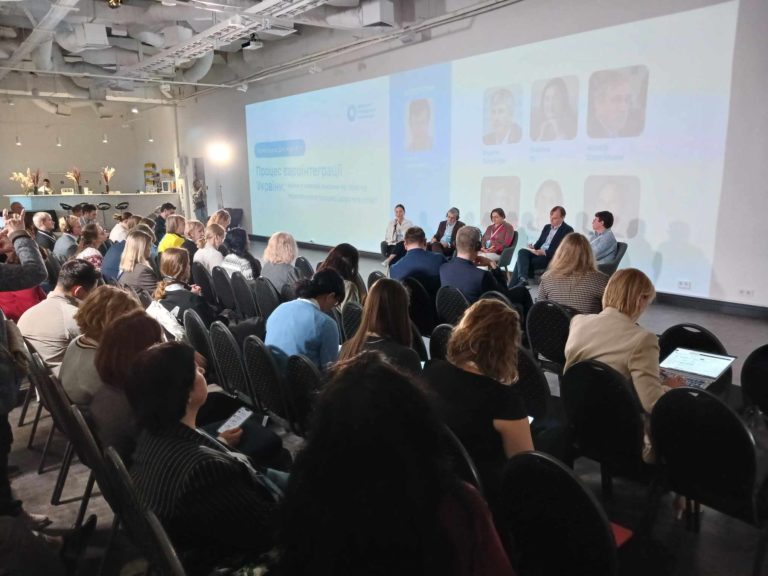The russo-Ukrainian war also negatively affects the media economy. Newsrooms cut spending, look for new formats, or close down.
On June 16, the experts met online to discuss issues relating to the media economy in wartime.
Otar Dovzhenko, editor-in-chief at Detector media and IMC chairman, Oleksandr Kharchenko, director at Ukrinform, Oleksandr Martynenko, director-general of the news agency Interfax Ukraine, Kyrylo Lukerenko, executive director at Hromadske Radio, Anna Babinets, head of Slidstvo.info, Anastasiia Shybiko, head of Free Radio (Bakhmt), Andriy Rusyniak, founder and director-general of the Ivano-Frankivsk-based TRC RAI, and Roman Turiy, editor-in-chief of the Ivano-Frankivsk media outlet Galka.if.ua participated in the discussion.
The event was moderated by Taras Petriv, president of Souspilnist Foundation and IMC member, and Dmytro Tuzov, Radio NV host, Foundation Souspilnist expert, and IMC member.

Oleksandr Martynenko noted that journalistic work is a serious challenge these days:
No one knows how newsrooms can survive in these conditions. It’s necessary to cut spending and increase profits. There are no estimates or forecasts. There’s a great risk of “jeans” [paid-for content – ed.] rising after the war. Media outlets will be looking for ways to earn money, and some of them will agree to actively disseminate paid-for pieces. We should be ready for that.
I realize that newsrooms will look for ways to survive and one can’t blame them for it, but we must always know and remember that “jeans” is evil. That’s not a path to follow. Even in a time like this. There’s been talk for years that Ukraine has too many media outlets. That’s “natural selection” now. Unfortunately, among the media that closed down or are in the process of closing down, there are good outlets, added Otar Dovzhenko.
During wartime, media can get partial funding from:
- grant support (e.g., Slidstvo.info, Hromadske Radio, and Free Radio);
- advertising (Galka.if.ua, Free Radio, and Hromadske Radio);
- audiences (many outlets abandoned his model, prioritizing the audience’s support for the AFU instead);
- the state (for the state-owned media, e.g., Ukrinform).
Among the opportunities to keep newsrooms afloat during wartime, the experts listed learning the basics of working with grant applications, looking for new opportunities to place ads, revisiting the principles of taxation of the media and amending media laws, and creating a unified channel that would unite regional broadcasters into one system, thus uniting the country.
Experts agreed that a comprehensive approach to solving existing media economy problems is possible by learning from each other’s experience and developing joint solutions to develop a high-quality media market in Ukraine during further discussions.
The event was organized by Souspilnist Foundation with the support of Internews Ukraine, Detector Media, and the Independent Media Council. We will continue to hold expert discussions to tackle issues facing the media sphere today.


